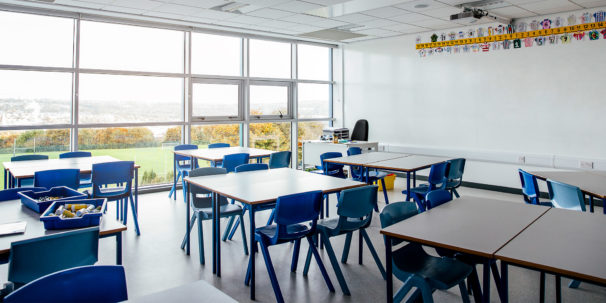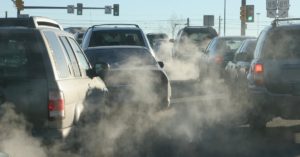What is the wider impact of coronavirus on society?
Hear from LSHTM academic, Professor Martin Mckee, on what society may look like post-pandemic and what the world might learn from this experience.

In
this post, Professor Martin Mckee – Professor of European Public Health
at the London School of Hygiene and Tropical Medicine – discusses the
wider social and economic impacts of COVID-19 and what might be done to
minimise their effects on health and society. 
This article is taken from LSHTM’s free online course COVID-19: Tackling the Novel Coronavirus. You can join for free today to learn more about coronavirus and its worldwide implications.
The COVID-19 pandemic has changed our lives in ways that we could not have imagined. Once busy streets are emptied, bars and restaurants are closed, many children are still unable to go to school.
But what might our future society look like as a consequence of the response to COVID-19? And what might we be able to learn from this experience to make the world a better place?
We can start by looking at the impact of the responses that have been adopted around the world. Many countries imposed restrictions on what people can do with the objective of reducing the opportunities for transmission of the virus. They included limits on non-essential travel outside the home, closure of shops and entertainment venues, and bans on mass gatherings.
The following draws extensively on analysis by the LSHTM that has been published in the British Medical Journal. I would encourage you to read it, as it expands on these issues further.
The economic impact of COVID-19 restrictions

People who are unable to work during the pandemic risk losing their income and face possible unemployment if businesses fail.
We know from previous experience, like in the global financial crisis of 2008, that loss of income or employment has profound consequences for health, and in particular, for mental health.
It’s a source of great anxiety for those affected. There are things that governments can do to reduce these risks, but only if they already have the resources and systems in place that are necessary to respond.
Many rich countries have introduced schemes that provide a basic income for those unable to work. This provides some immediate security, but, as importantly, it provides relief for the businesses in which they work, keeping these jobs open so that they can recover quickly while its restrictions are lifted. Of course, unfortunately, there are many countries where this is not going to be possible.
The mental and physical impact of social isolation measures

Social isolation measures have severe consequences for mental health, particularly for those who live alone, and even more so if they have pre-existing health problems. We now know much more about the health-damaging consequences of loneliness, but we must also think about the practical difficulties that people face, like buying food or getting medicines.
Again, there are enormous differences between rich and poor countries. There has been a digital revolution enabling many people who are physically isolated to maintain virtual contact with their friends and families, but sadly, once again, this is not the case in many of the world’s poor countries.
Additionally, we’re not all experiencing social isolation in the same way. Not everyone lives in a happy family home. We need to think about how we can support victims of domestic abuse who are confined to their homes, unable to escape their abuser. We also need to think about the risks of exploitation of young people who are not in school.
There is further concern around an increase in health-damaging behaviours. Being stuck at home can be very boring, and it’s not helped by the cancellation of things like televised sports events.
Though it seems access to illicit drugs has reduced in many countries because of the difficulties faced by suppliers, in these circumstances, there’s a real risk that people look for relief in alcohol.
Perhaps the greatest risk of all is from problem gambling. We’re now understanding much more about how gambling companies exploit vulnerable people, and many companies are likely to see this pandemic as an opportunity.
The disruption of essential services and education

We’ve already seen how some national health services have stopped many of their routine activities to concentrate on COVID-19. At the same time, people with other conditions are reluctant to go to hospital for fear of becoming infected.
In some countries, the number of people attending hospital with heart attacks has fallen by about half. At least some of the excess deaths being recorded are due to people not seeking care when they need it.
Similarly, the majority of the burden of education disruption falls unequally on different socio-economic groups and on people living in countries with weaker education systems.
Some children will be able to connect with their teachers virtually on the internet, but many will not. Looking ahead, there is a real danger of a lost generation.
Social disorder and fear

Throughout history, pandemics have caused people to look for someone to blame. Sadly, there have been a number of accounts of racist attacks, sometimes encouraged by comments from politicians. It’s important to guard against stigmatising groups within society.
The psychosocial impact of COVID-19 cannot be overlooked or understated. While political leaders must communicate the risks involved and the progress being made in combating the pandemic, we also need to recognise that this is likely to instil fear and anxiety in many people. This could be a major barrier to returning to normality, as it will likely be a long time before many people are willing to go into crowded places, such as entertainment venues and on public transport.
In some ways, less reliance on public transport is an area where there may be some good news. The reduction in vehicle traffic in some places has meant that it may be possible to see blue skies for the first time in decades.
However, there is a risk that if people are fearful of using public transport, they’ll turn to cars which may create more severe consequences for our health and the environment.
Looking ahead, the one thing that we can say with certainty is that societies will change. They always have after major disease outbreaks. Whether this was the Black Death in Europe in the 14th century which contributed to a series of peasant revolts and the reformation, or the influenza pandemic in 1918 which contributed to increasing support for social security.
We’ve explored these issues further in a paper in Nature Medicine. Its key message is that this crisis does provide an opportunity to tackle some of the long-standing problems that have faced our societies, however, it is up to us whether we seize this opportunity for change.
To hear more from Professor Mckee and delve further into how coronavirus is impacting the world, join LSHTM’s free course and start learning today.
Browse our full list of courses created in response to the coronavirus here.









Comments
Post a Comment